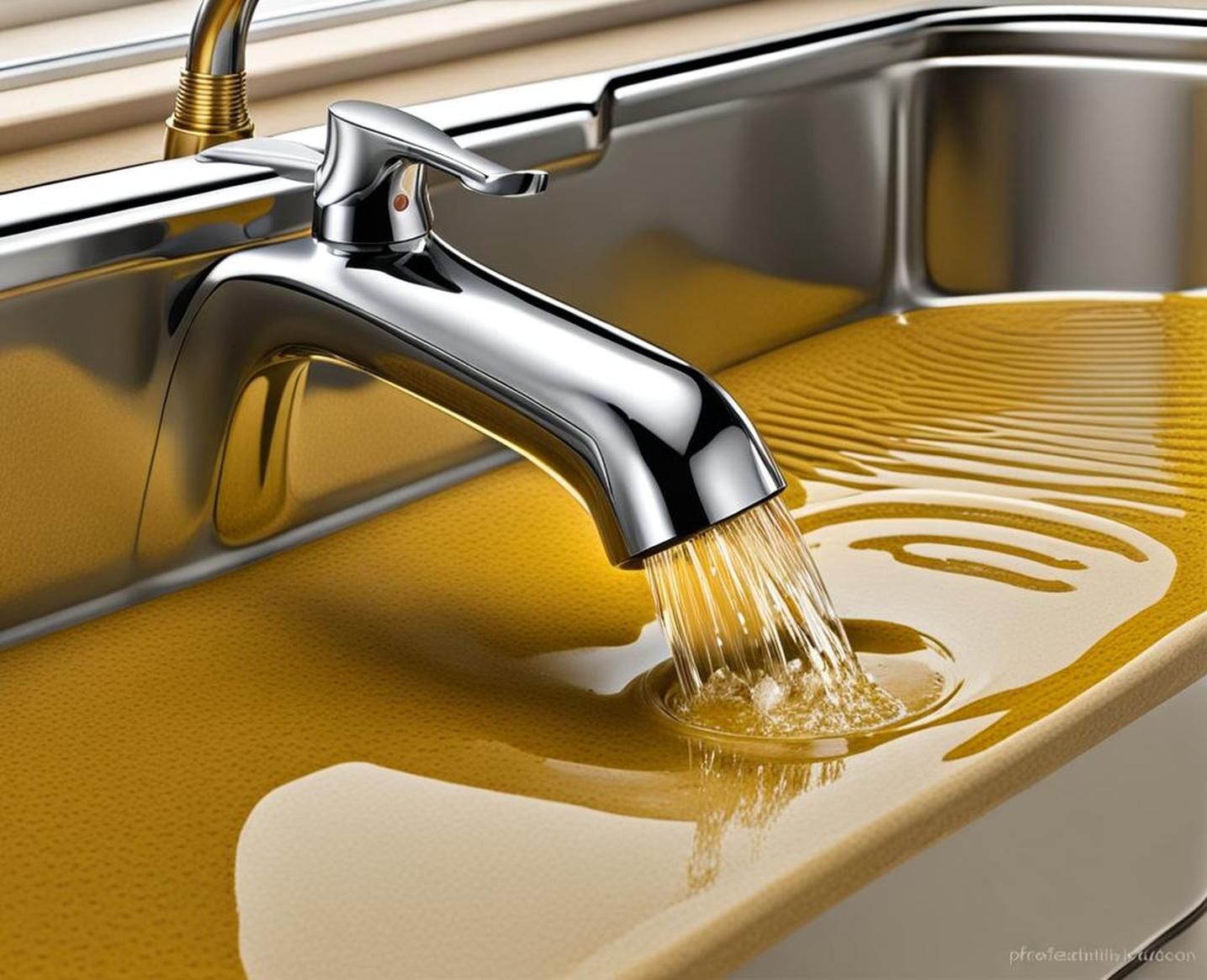If you’ve noticed your sinks and tubs draining slower lately or making gurgling noises, the culprit could be calcium buildup. Hard water containing dissolved calcium minerals leaves limescale deposits as it flows through pipes and drains. Over time, these calcium deposits can completely clog your plumbing.
Removing drain blockages caused by calcium buildup can be frustrating, especially if plunging and snaking provide only temporary relief. Thankfully, there are several effective methods to dissolve calcium clogs using common household ingredients.
What Causes Calcium Buildup in Drains?
Hard water contains a high concentration of minerals like calcium and magnesium. As hard water passes through pipes, heat and air exposure causes the dissolved calcium to come out of solution and leave behind mineral deposits. Areas with limestone bedrock are especially prone to hard water.
Calcium carbonate is the main component of limescale. When hard water evaporates, such as in pipes, the calcium carbonate becomes more concentrated. Hot water also accelerates calcium carbonate scaling. The buildup eventually accumulates to the point of obstructing water flow through your drains and taps.
Signs You Have a Calcium Clog
How can you tell if slow drainage is caused by a calcium blockage? Here are some telltale signs:
- Water drains sluggishly or seems partially blocked
- Gurgling noises come from the drain
- Drains emit a musty, damp odor
- White mineral deposits are visible around taps and drains
- Faucet water flow seems weaker
If you notice these issues, especially in a hard water area, calcium scale is likely the culprit. Addressing the clog early provides the best results.
Dangers of Calcium Buildup in Plumbing
Why is it important to clean calcium deposits from your drains? Here are some potential problems:
- Complete clogs that totally block water drainage
- Corrosion, damage and deterioration of pipes
- Mineral buildup in appliances leading to failures
- Decreased water pressure throughout the plumbing system
- Increased risk of leaks, floods and water damage
Limescale buildup causes extensive plumbing issues that increase with time. By removing calcium blockages, you can avoid expensive repairs.

Cleaning Solutions That Dissolve Calcium
Commercial drain cleaners are powerful but can be hazardous if misused. For a safer option, try these common household products:
Vinegar
The acetic acid in vinegar reacts with the calcium carbonate deposits to gradually dissolve and loosen them. Pour a 1:1 mixture of vinegar and warm water down the clogged drain. Let it sit for several hours so the vinegar has time to work before flushing with hot water. Repeat as needed for tough clogs.
Baking Soda
Baking soda is a base that reacts with vinegar to create bubbles and a fizzing effect. This helps break up and dislodge calcium deposits. First, pour about 1/2 cup baking soda down the drain. Follow with an equal amount of vinegar and let it sit before rinsing.
| Pour baking soda down drain | Pour equal amount of vinegar |
| Chemical reaction breaks up calcium | Let sit for several hours |
| Rinse thoroughly with hot water | Repeat as needed |
Lemon Juice
Like vinegar, the citric acid in lemon juice helps dissolve calcium deposits. Cut a lemon in half and rub the exposed fruit over drain walls and pipes. Let it sit for 15-30 minutes before flushing with hot water. Repeat weekly to prevent future buildup.
Citric Acid
For a more powerful treatment, buy citric acid powder at health food stores or pharmacies. Once a week, mix 1 cup citric acid with hot water and pour down problem drains. This weak acid prevents limescale accumulation while being safe for plumbing.
When to Call a Professional Plumber
For severe calcium clogs:
- If DIY methods don’t improve drainage
- Complete blockages that require snaking
- If odors or leaks persist
- For camera pipe inspection if needed
A professional plumber has the tools and expertise to fully clear calcium obstructions and inspect your drains. They can also determine if repiping is needed for persistent buildup issues.
Preventing Future Calcium Buildup
Along with regularly cleaning drains, consider these tips to avoid future calcium deposits:
- Install a water softener to remove calcium from the water supply
- Upgrade old pipes to PEX or CPVC which resist buildup
- Have your home’s water tested for hardness
- Use distilled vinegar weekly as prevention
Hard water makes avoiding calcium scale difficult, but a multi-pronged approach provides the best results. Maintaining your drains and plumbing helps prevent damage and costly repairs.
Calcium buildup causes a range of plumbing headaches, from reduced water pressure to complete clogs. Thankfully, common household products like vinegar, baking soda and citric acid can dissolve mineral deposits. Always take safety precautions when using any chemical cleaner.
Prevention is key for homes prone to limescale. Consider installing salt-free water softening to reduce hardness. Maintain drains by pouring vinegar or citric acid weekly. Addressing calcium buildup early provides the easiest clearing. With the right solutions, you can banish hard water woes and keep drains flowing freely!
